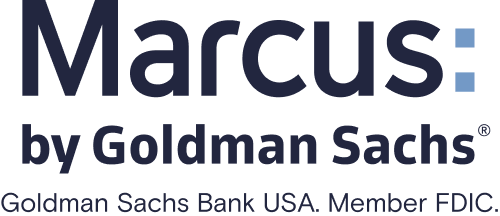What Is Interest?
Interest is the amount you earn for lending out your money.

Many, or all, of the products featured on this page are from our advertising partners who compensate us when you take certain actions on our website or click to take an action on their website. However, this does not influence our evaluations. Our opinions are our own. Here is a list of our partners and here's how we make money.
Interest definition
Interest is the money you receive for loaning out funds. Interest is also the money you pay when you borrow funds. In a nutshell, it’s the amount charged for the privilege of using someone’s money.
If your savings account earns interest, you're effectively “charging” your bank or credit union for the privilege of holding your cash. The financial institution is likely using those funds to make loans to borrowers, and is also charging them interest. Credit unions have a similar process, but they call interest “dividends.”
What is an interest rate?
Interest is usually expressed as a percentage of a borrowed amount, and that percentage is known as the interest rate. For deposit accounts, such as checking and savings, interest earned over a one-year time period is often expressed as the annual percentage yield, or APY. The national average savings rate is 0.39% APY. But some institutions — particularly those with online savings accounts — offer much higher yields, often many times more than the national average. For savers, the more you deposit and the higher the interest rate, the more your account earns.
» Looking for top savings options? Check out NerdWallet’s list of best savings rates
Forbright Bank Growth Savings

4.00%
$0

Member FDIC
Varo Savings Account

5.00%
$0

Member FDIC
E*TRADE Premium Savings

3.50%
$0
If you’re borrowing money to spend, a higher interest rate is costly. It means you’re paying more to use that money, making the loan more expensive than it would be with a lower rate. But when you’re being paid interest, a higher interest rate is good. It means more money in your account.
Interest rates can sometimes move in a similar direction as inflation rates. With increasing inflation, the Federal Reserve may move to raise interest rates, which can slow down consumer spending and keep prices from increasing too quickly. Likewise, lower inflation can lead to lower interest rates, but that can also mean lower yields on savings.
When you're planning to open a savings account, it makes sense to shop around for as high an APY as possible.
» Want to dig deeper? Learn how to calculate interest in a savings account
Interest example
If you put $6,500 in an account that pays a 0.55% interest rate, you can calculate the interest earned by multiplying the balance by the rate: $6,500 x 0.55% (or $6,500 x 0.0055, since when you multiply by a percentage, you move the decimal two places to the left). The result is $35.75, so you’d earn that much in interest in one year. It may not seem like a lot, but that $35.75 would earn interest if it’s left in the account, thanks to the effect of compound interest.
What’s the difference between simple interest and compound interest?
The initial amount of interest you earn is considered “simple interest.” If you leave the amount you earned in interest in the account, that money also starts earning interest, allowing your overall balance to grow more. This is known as “compound interest.”
Taking advantage of compound interest helps you build up money faster over time. It lets your cash work for you, which is especially important when rates are low.
In the example above, if the account earns 0.55% APY over a three-year period, the balance after that time would be more than $6,600.
» Looking to bank online? Read NerdWallet’s list of best high-interest online savings accounts
To estimate the interest you’d earn in other savings scenarios, use NerdWallet’s compound interest calculator. You can compute your potential balance with various starting amounts and interest rates. You can also see how making monthly deposits could affect your balance.
It’s worth noting that interest rates on savings accounts are typically variable and can change at any time. Banks and credit unions also offer certificates of deposit, called share certificates at credit unions, which give you a set interest rate for a certain time period, like six months or five years. But you generally can’t withdraw money in that period, or else you’ll have to pay a penalty.
Interest is money paid for the benefit of using money. When you have a savings account that earns interest, your financial institution is paying you to use your funds. The smart move is to pick an account that gives you strong interest rates and the ability to grow your balance easily.
» Learn more: Can interest rates drop below zero?












